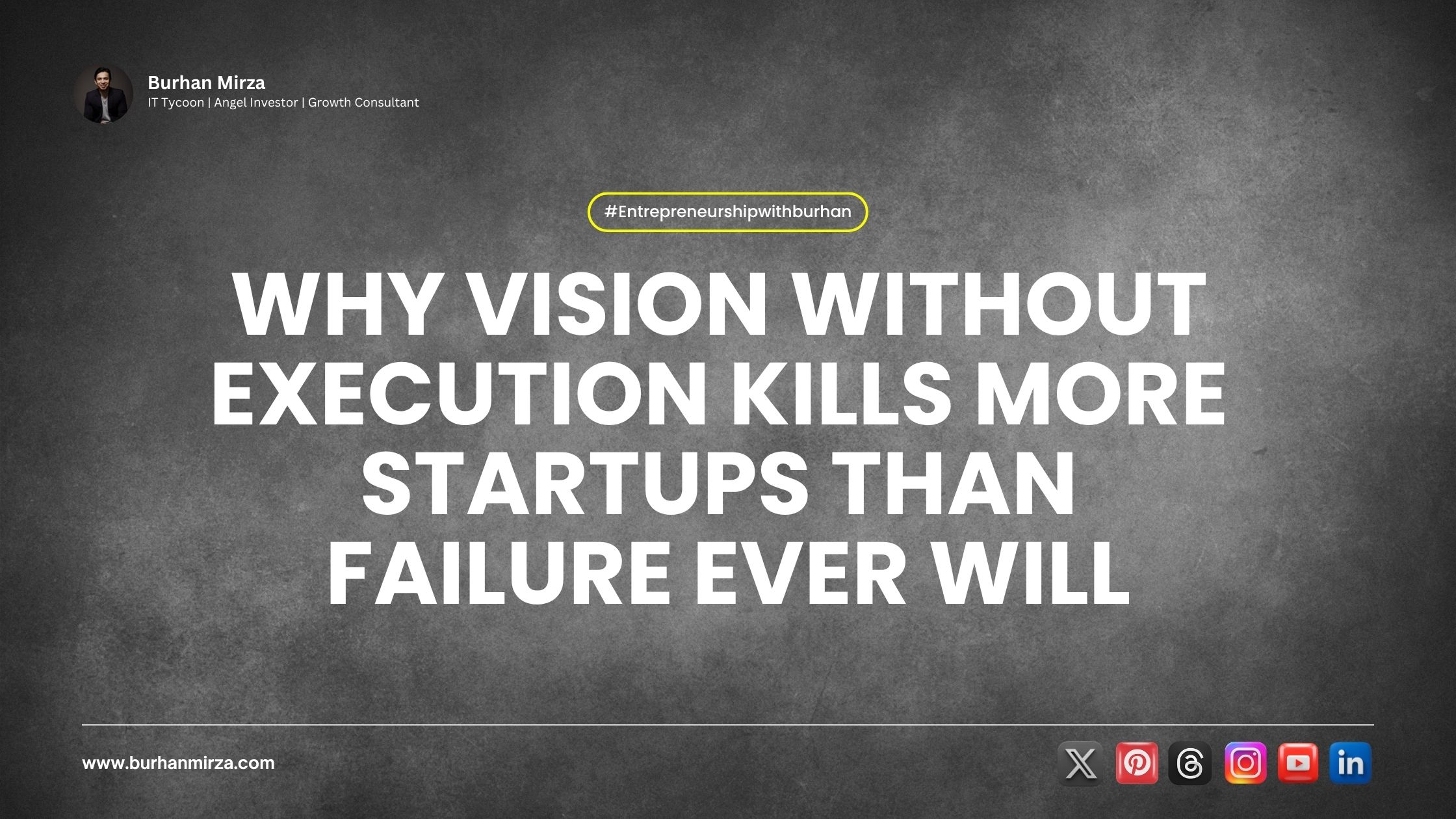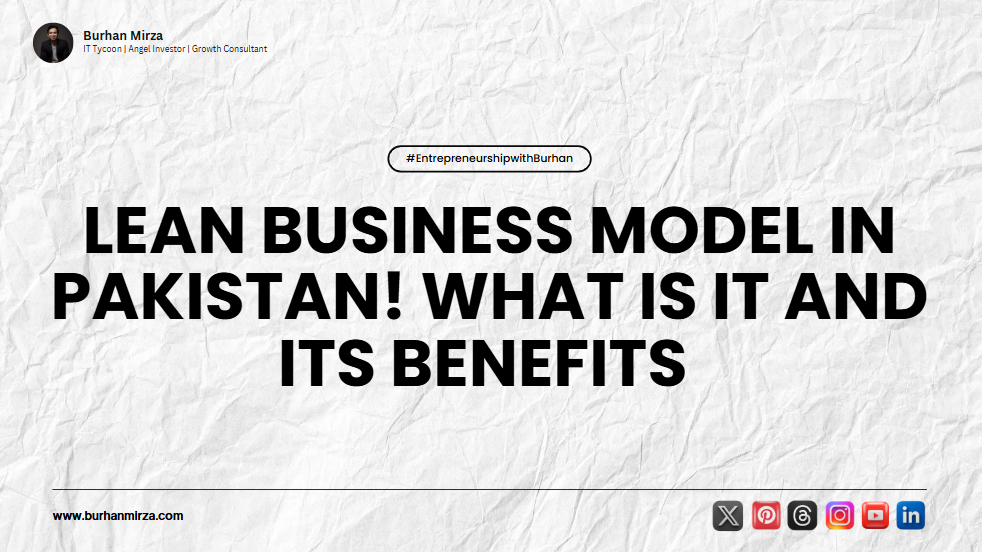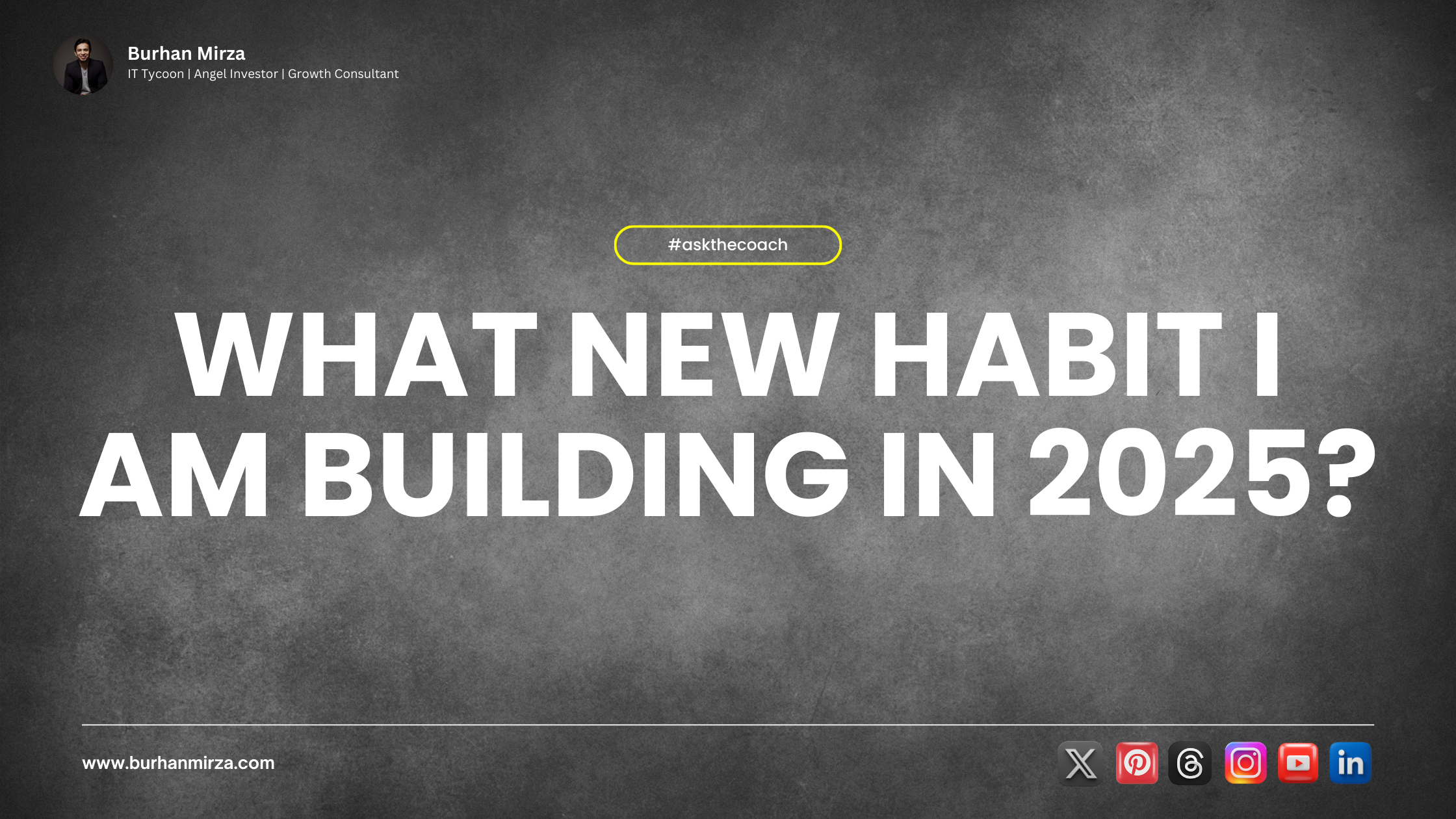 Blogs
Blogs
Why Vision Without Execution Kills More Startups Than Failure Ever Will

There’s an ancient Japanese saying I’ve come to believe deeply after years of mentoring startups, “Vision without execution is just hallucination.”
Everyone in the startup world talks about the next big idea. The billion rupees product. Pitch decks are full of it. Founder dinners are overflowing with it. Twitter threads are addicted to it.
But here’s the hard truth, ideas don’t build companies, execution of those ideas does. In fact, most startups don’t die because the idea was bad. They die because the team couldn’t execute it.
Let me break down exactly why execution, not vision, is what separates the winners from the rest.
1. An Idea Is Just the Starting Line
Every founder has that lightbulb moment where they think, “Why doesn’t this exist yet?” But guess what? Millions of people have had the same thought. Execution is what turns that spark into fire.
Think about Airbnb. The idea of renting out your home to strangers? Not groundbreaking. But the way they executed it with the design, trust-building, platform simplicity, market timing, that’s what made it a unicorn.
Vision gets you started. Execution gets you funded, scaled, and remembered.
2. The Market Doesn’t Reward Potential. It Rewards Results.
You can have the most innovative idea in the world, but if you can’t turn it into a working product, a customer experience, and a repeatable revenue model, you’re building castles in the air.
Investors won’t bite. Customers won’t stay. Talent won’t stick around. Why? Because people don’t invest in dreams they invest in traction.
Even in Pakistan’s current market conditions, execution wins. With inflation rising and capital drying up, there’s no room for fuzzy timelines and “we’re still building.” You need results. Fast. Lean. Focused.
3. Execution Builds Momentum, Vision Alone Doesn’t
Startups grow in sprints. Each milestone whether its MVP, first 10 users, repeat sales, market validation, it adds speed. That speed creates confidence. That confidence attracts capital, talent, and media attention.
But none of that happens if you’re stuck “refining the idea” for 9 months. I’ve seen founders pitch the same idea three years in a row with zero movement. Same website, no users, no revenue. They’re not building a business. They’re writing a fantasy novel.
Momentum comes from motion. Execution is the motion.
4. Vision Doesn’t Survive Chaos Execution Does
The early days of any startup are messy. You’ll hit bugs, delays, failed launches, angry customers, and funding roadblocks. Vision won’t help you in those moments. Execution will.
It’s the founder who wakes up every day, solves one problem at a time, makes one customer happy, writes one more follow-up email that wins the long game.
Your dream needs discipline. Or it dies.
5. The World Is Full of Dreamers Very Few Are Builders
You don’t get paid for having ideas. You get paid for building things that work. That’s why I always say: Don’t tell me your startup idea. Show me what you’ve built with it.
Can I click it? Can I buy it? Can I see proof it works? If not, it’s still just vaporware.
So How Do You Bridge the Gap Between Vision and Execution?
Here’s what I tell every founder I mentor:
- Ship fast, learn faster. Your MVP should be live in weeks, not months.
- Create systems. Execution scales when your workflow doesn’t depend on memory or mood.
- Track KPIs, burn, churn, CAC, retention ruthlessly. If you can’t measure it, you can’t improve it.
- Delegate early. Build a team that complements your weaknesses. You can’t execute alone forever.
- Kill ego, not speed. Don’t hold back launches because it’s “not perfect.” Perfect is the enemy of progress.
Final Word
Vision gives you direction. But execution gives you momentum. The best founders? They merge them both. They dream like artists but build like engineers.
So next time someone asks you what you’re working on, don’t tell them about the idea. Tell them what you’ve shipped. What you’ve sold. What you’ve fixed. What you’ve learned. Because in the end, startups don’t fail from lack of imagination.
They fail because no one ever got the work done.
 Muhammad Burhan Mirza
Muhammad Burhan Mirza My Story
My Story Events
Events Social Highlights
Social Highlights Books
Books Blog
Blog Press Kit
Press Kit  Contributions
Contributions 

